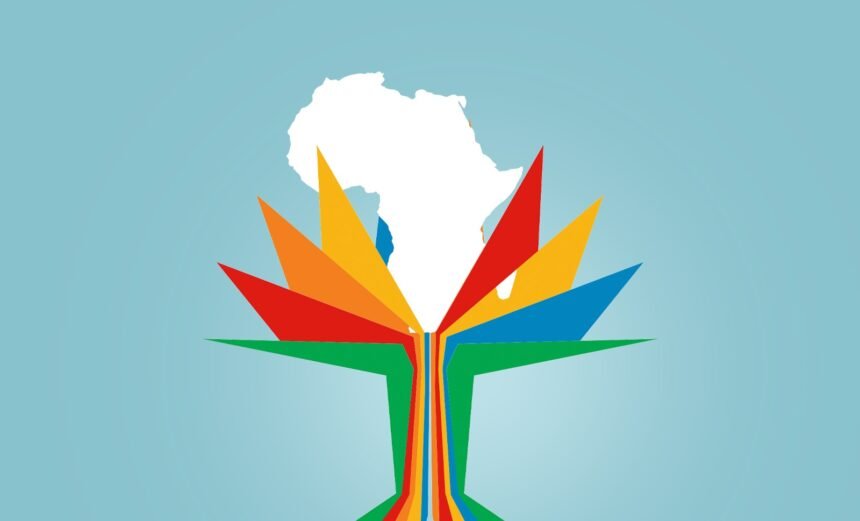The world is shifting, and Africa is watching carefully from the centre of the storm. As the BRICS grouping—originally composed of Brazil, Russia, India, China, and South Africa—expands its footprint and influence, a new courtship of the African continent is well underway. And this time, it’s not just about aid or investment—it’s about power, alignment, and rewriting the rules of global governance.
At the recent BRICS Foreign Ministers’ meeting in Russia, African issues weren’t a sideshow—they were front and centre. From calls to reform the United Nations Security Council to support for alternative payment systems outside the dollar-dominated financial system, the messaging was clear: the Global South is stepping up, and Africa is a key player in its plans.
The BRICS bloc, now also including Egypt, Ethiopia, Iran, and the United Arab Emirates as new members, is transforming from an economic acronym into a political force. With its growing clout, BRICS is offering African nations something they’ve long desired but rarely received—agency. And that offer is arriving at a time when the Western-led liberal order seems increasingly fragmented and fatigued.
For decades, Africa has been on the receiving end of great power rivalry. From Cold War alignments to twenty-first-century trade wars, the continent has often been seen as a prize rather than a partner. But as BRICS consolidates its identity and seeks to reorient the international system, it is actively inviting African nations not only to join—but to lead within the bloc.
One example is the growing push to replace the U.S. dollar in international trade among BRICS members. For many African economies long constrained by dollar shortages, currency volatility, and IMF conditionalities, this shift could offer new breathing room. Whether it’s trading in national currencies or developing a common BRICS payment system, the proposed alternatives have the potential to loosen the West’s economic grip on African markets.
At the same time, BRICS is offering political solidarity. At the Russia meeting, members expressed support for African representation on the UN Security Council and affirmed the principle of non-interference—code for standing against Western sanctions and military interventions. For leaders in capitals like Addis Ababa, Pretoria, and Cairo, this resonates.
However, the real story is not just about BRICS wooing Africa—it’s also about how African countries are navigating the courtship. Many are carefully hedging, trying to avoid choosing sides in the growing rift between Western powers and the emerging BRICS bloc. The result is a subtle but strategic balancing act.
Take South Africa. As a founding member of BRICS, it remains committed to the group’s vision. But it is also deeply entwined with Western economies, especially the European Union. South Africa is trying to walk a tightrope—supporting multipolarity and reform without fully breaking with traditional allies.
Then there’s Egypt, one of the newest BRICS members. Facing economic turmoil at home and dollar shortages that have crippled imports and strained foreign reserves, Cairo sees BRICS as a potential lifeline. Yet it too must manage ties with Western lenders, Gulf patrons, and international investors. For President Abdel Fattah el-Sisi, joining BRICS is a signal of diversification, not defection.
Meanwhile, Ethiopia’s presence in the bloc is a bold move. It is the only BRICS country with no direct access to the sea, but with one of Africa’s fastest-growing economies. The symbolism of a landlocked country joining a global economic bloc speaks to the continent’s evolving aspirations: inclusion, voice, and long-overdue recognition.
But the pivot to BRICS is not without complications. The bloc itself is far from homogeneous. China and India are at odds over territory. Russia is facing Western sanctions. Brazil under President Lula has rekindled its leftist internationalism but remains economically fragile. The coherence of BRICS is still more promise than practice.
Moreover, for Africa, the risk is being caught in a new dependency—this time on non-Western powers. Chinese loans, Russian security partnerships, and Gulf capital come with their own strings attached. Multipolarity, while attractive, is not a magic bullet. It could also fragment the continent further if not carefully managed.
Still, there is a clear energy in the African response. Countries are no longer content to be passive participants in a game they didn’t design. Whether through BRICS, the African Union’s inclusion in the G20, or expanded roles in global financial institutions, Africa is increasingly making its voice heard.
In this emerging world order, Africa is not choosing between Washington and Beijing, Brussels and Moscow. It is choosing itself.
And in a world where influence is increasingly about numbers, resources, and positioning, Africa—home to 1.4 billion people and the world’s youngest population—is a prize no global power can afford to ignore.










